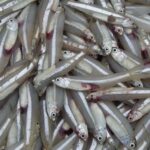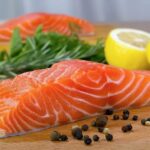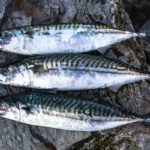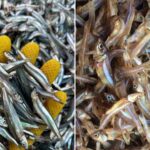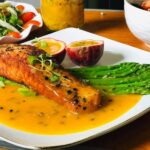Mackerel – The True King of Omega-3
When it comes to the best sources of omega-3, mackerel (especially Atlantic mackerel) takes the crown. According to the United States Department of Agriculture (USDA), just 100 grams of mackerel can provide up to 4,580 mg of omega-3 fatty acids in the form of EPA and DHA – more than twice the amount found in salmon.
This makes mackerel an excellent food choice not only for cardiovascular health but also for cognitive function, vision, and immune support. In addition to omega-3, mackerel is packed with vitamin B12, vitamin D, selenium, and high-quality protein.
Mackerel is widely available in Vietnam, particularly Japanese mackerel, tuna, and scad mackerel. At a reasonable price range of 80,000–150,000 VND per kilogram, you can easily incorporate this “golden” food into your family’s diet.
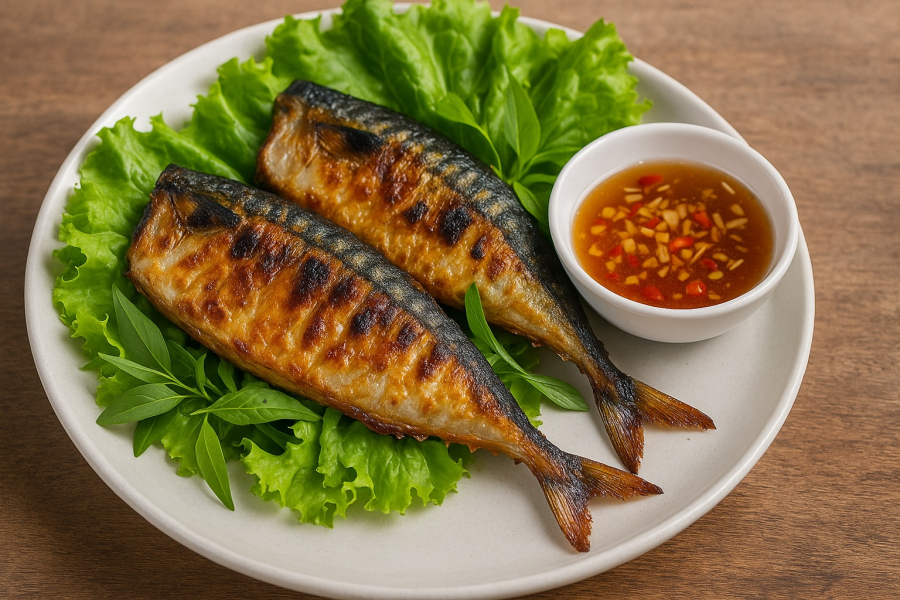
Salmon – Deservedly Famous but Not the “Number One”
There’s no denying that salmon is one of the healthiest fish options out there. A 100-gram serving of farmed Atlantic salmon contains approximately 1,200–1,900 mg of EPA and DHA, which is still higher than most other foods.
Salmon is also a great source of vitamin D, B vitamins (B6, B3, and B5), and minerals such as iron, potassium, and selenium. However, as an imported food item, salmon tends to be quite expensive in Vietnam, ranging from 300,000–500,000 VND per kilogram, which may deter some families from including it in their regular meals.
Additionally, salmon is often consumed raw or lightly cooked, so it’s important to ensure the source is safe to avoid the risk of bacterial or parasitic infections.
Sardines and Herring – The Unsung Heroes of the Vietnamese Market
Alongside mackerel and salmon, sardines and herring are two small but nutritionally mighty fish. On average, an 85-gram serving of sardines provides around 1,800–2,000 mg of omega-3, which is comparable to salmon.
What sets sardines apart is their convenience – they are often sold in cans, which are easy to store, have a long shelf life, and can be readily enjoyed with bread, salad, or rice. Herring is typically salted or smoked, making it a great addition to Nordic-style dishes or creative Vietnamese recipes.
Both sardines and herring are significantly more affordable than salmon, ranging from 50,000–100,000 VND per kilogram (or just 20,000–30,000 VND for imported canned fish).
Why Opt for Inexpensive Fish?
Nutritionists and reputable health organizations alike emphasize the benefits of choosing smaller, oily fish like mackerel, sardines, and herring. These fish offer a double advantage: they are rich in omega-3 fatty acids and have significantly lower mercury levels compared to larger fish such as tuna or swordfish. According to Mayo Clinic, the cardiovascular benefits of omega-3 typically outweigh the potential risks from mercury if consumers opt for smaller fish in their weekly diets. The Washington Post also highlights that these smaller fish, lower in the food chain, have lower levels of mercury and toxins but are abundant in omega-3.
Indeed, smaller fish tend to live closer to shore and have shorter life cycles, resulting in lower accumulation of mercury and heavy metals, which can adversely affect the nervous system and are particularly dangerous for pregnant women and young children.
Additionally, these fish offer several advantages:
- Affordable and accessible
- Aligned with Vietnamese taste preferences: easy to prepare and familiar
- Stable supply: available fresh, canned, or salted
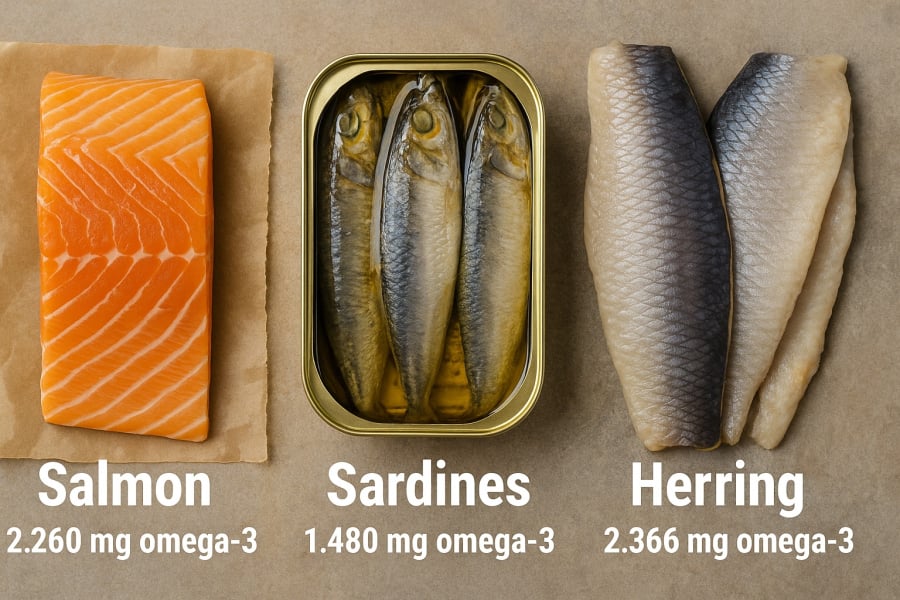
Tips for Maximizing Omega-3 Absorption from Fish
To ensure your body absorbs the most omega-3 from fish, consider the following:
- Consume 2–3 fish meals per week: Prioritize oily fish like mackerel, salmon, herring, and sardines
- Prepare fish healthily: Steaming, grilling, or braising with minimal oil are ideal
- Avoid over-frying: High temperatures reduce the omega-3 content in fish
- Combine with green vegetables, olive oil, and flax seeds to further boost beneficial fatty acids
If you’re unable to eat fish, you can still supplement your diet with fish oil or EPA/DHA capsules, but they can’t entirely replace the nutritional benefits of fresh fish.
Conclusion
Sometimes, the obvious choices aren’t always the best. While salmon is renowned globally, it’s not the king of omega-3. Instead, the humble mackerel, with its familiarity, affordability, and exceptional nutritional profile, quietly takes the top spot.
Making informed choices about the type of fish we consume and how we prepare it benefits not only our health but also our wallets. Sometimes, the best options aren’t the most expensive, but rather, they reflect our knowledge and smart selections as consumers.
The Ultimate Omega-3 Superfish: Unveiling the True King Beyond Salmon
“For years, salmon has reigned supreme as the undisputed king of omega-3 fatty acids. But, lo and behold, there’s a new champion in town, and it might just surprise you. Step aside, salmon, because a humble, everyday fish found in abundance in Vietnamese markets is about to take the crown. Get ready to discover the new ruler of the seafood kingdom!”
























